
4tretre Stadi De Kuip
Travel by metro If you are travelling on the Rotterdam Metro, you will have to change to a tram at metro stop Wilhelminaplein to reach Feyenoord Stadium De Kuip. Take line D (direction Rotterdam Central Station) or line E (direction Den Haag). Exit at the metro stop Wilhelminaplein and change to tram 23 (direction Beverwaard).
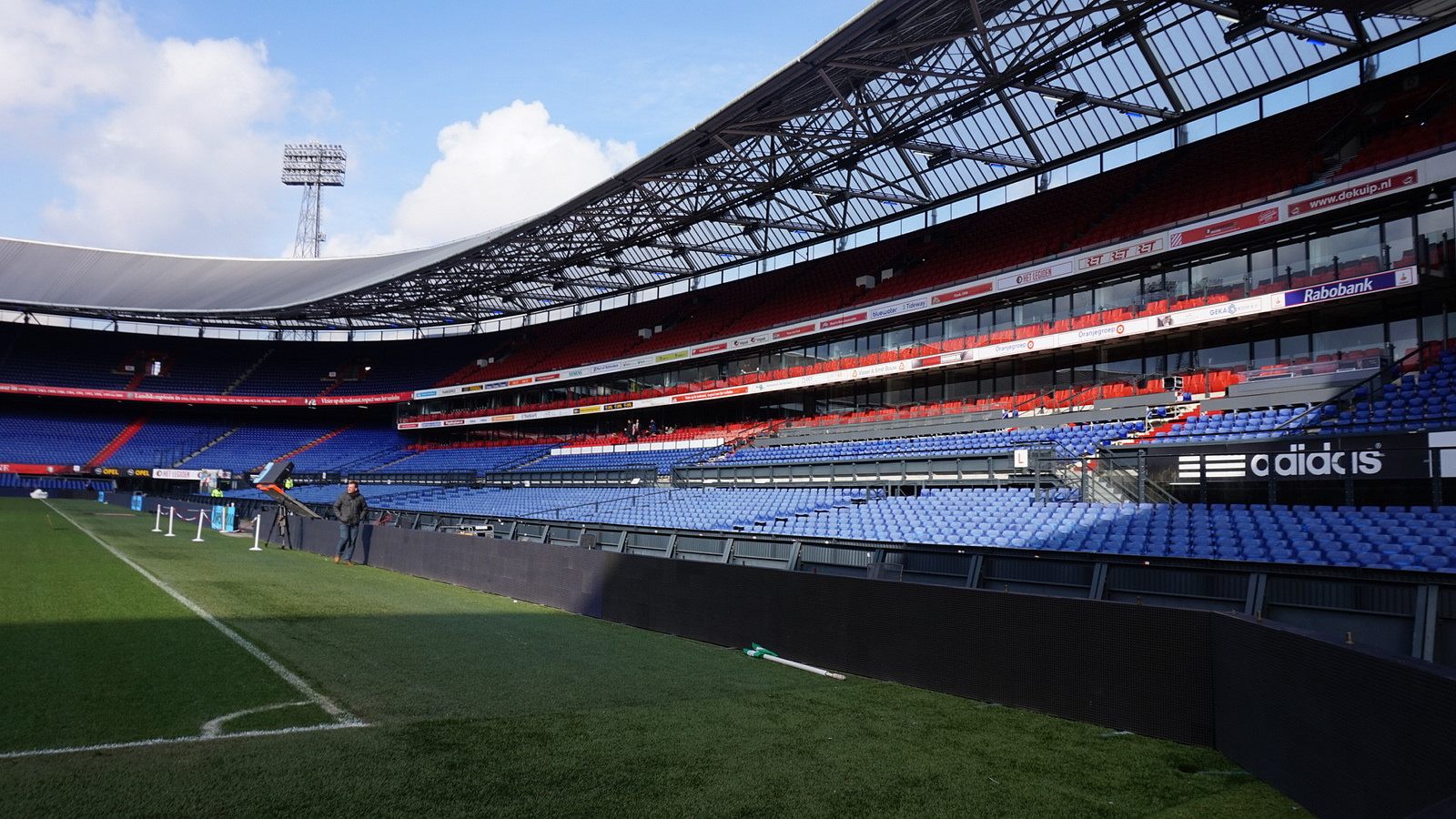
Stadion Feijenoord (De Kuip)
Book directly Discover what makes De Kuip so special during a tour of the stadium. Whichever tour you choose, you will always experience the magical feeling that the stadium generates.
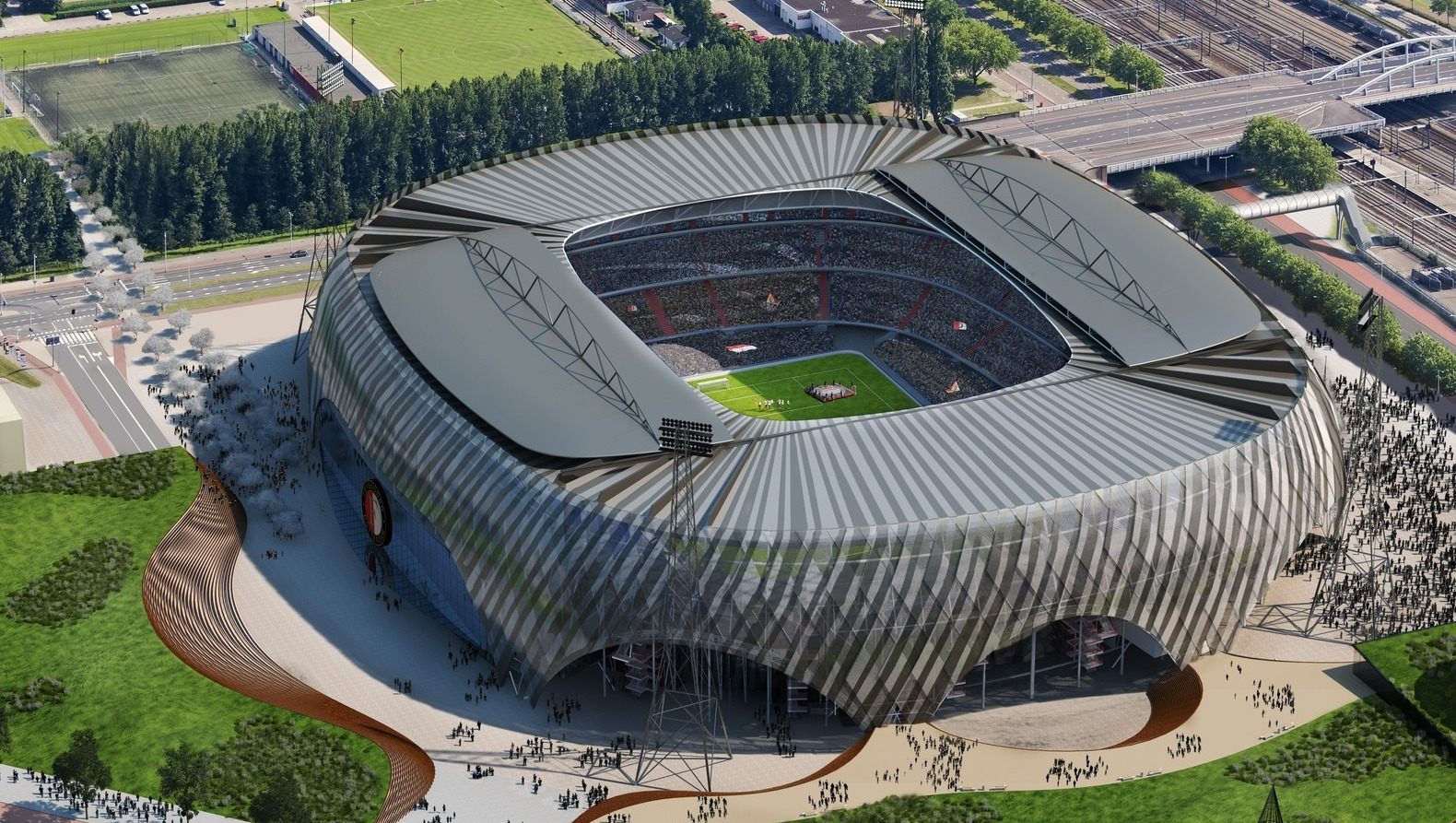
Design De Kuip
Official Feyenoord ticket office. Generally, Feyenoord matches sell out quickly, so we recommend you book ahead. Any available matchday tickets are sold at our stadium ticket offices which open 3,5 hours before kick-off. You will find the ticket offices at Olympiaweg 50, Rotterdam . Feyenoord strongly recommends you to not buy match tickets on.
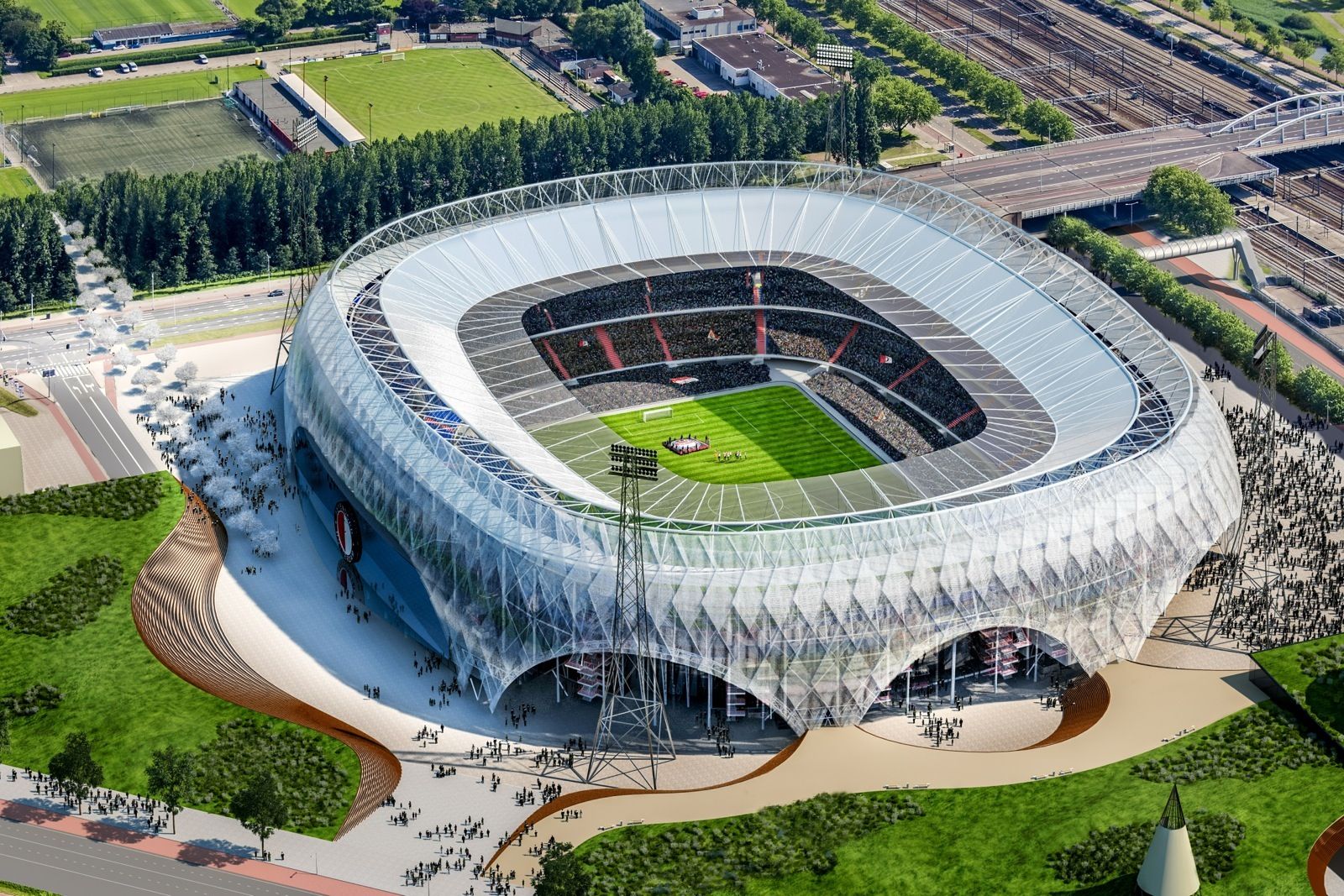
Design De Kuip
Party An experience to never forget Party location Meeting De Kuip brings you new ideas Meeting location Event More than just the home base of Feyenoord Event location Curious about our business opportunities? Sign up for the free monthly tour. Discover all our rooms and possibilities without obligation in a maximum of 1.5 hours
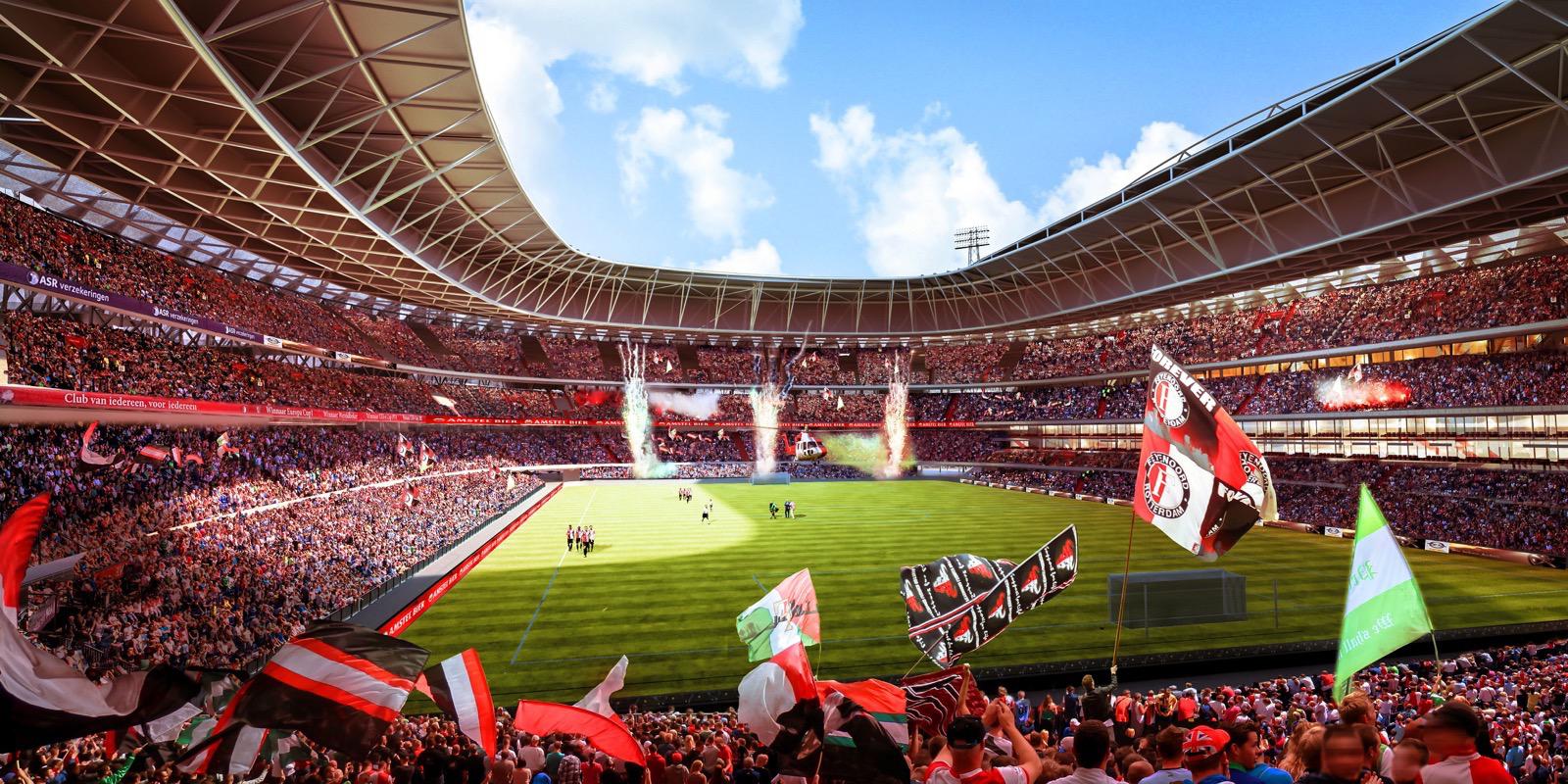
Design De Kuip
Feyenoord Stadium (AKA De Kuip) The Feyenoord Stadion in Rotterdam is one of the most iconic footballing arenas in the whole of Europe. That it is in danger of being demolished should be of concern to all who value such structures over the new and often soulless stadia we've seen in recent times. Inaugurated in 1937, the ground is known to.
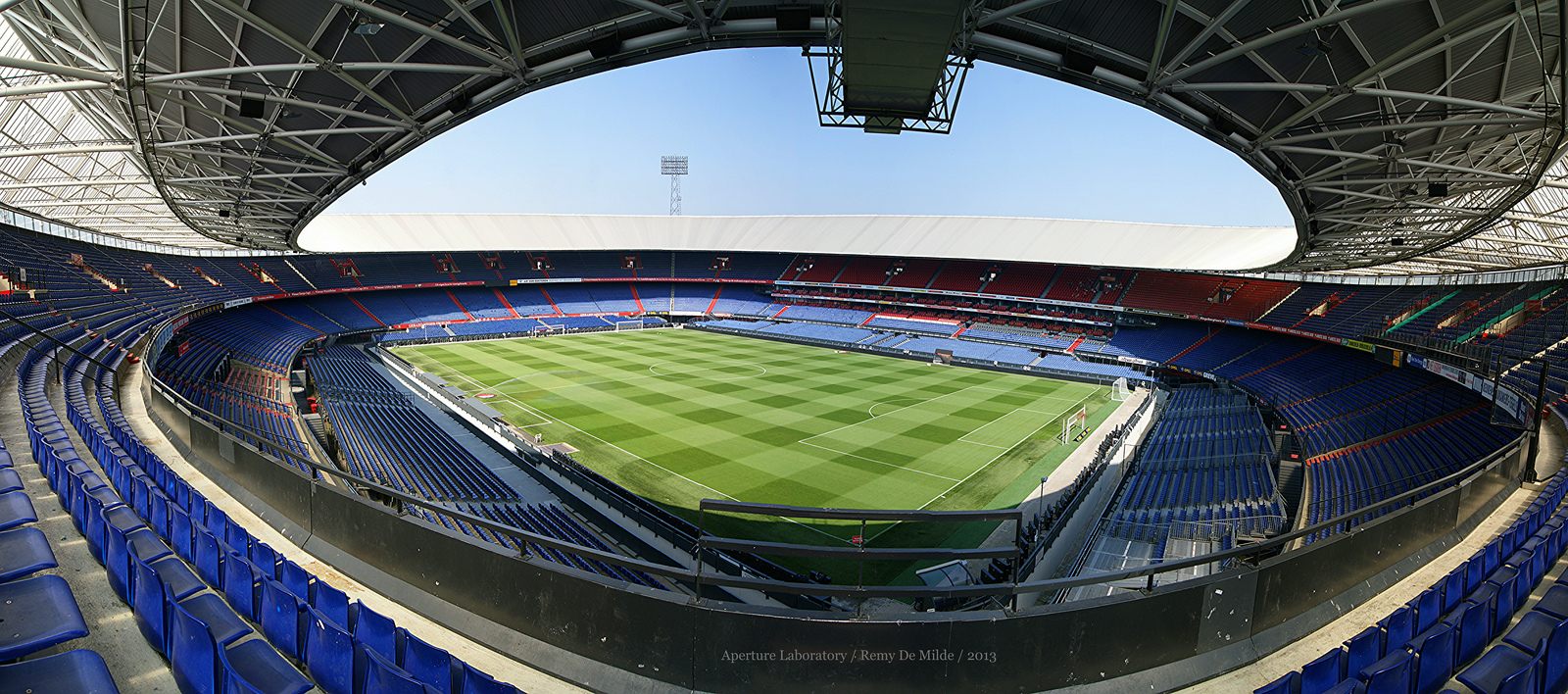
Stadion Feijenoord (De Kuip)
Look behind the scenes in one of the world's greatest stadiums! Buy tickets for a tour at stadium De Kuip and the Feyenoord Museum.

Stadion Feijenoord (De Kuip)
Stadion Feyenoord - Feyenoord Stadium Guide. Stadion Feijenoord more commonly referred to by its nickname of De Kuip ( The Tub in English), is a purpose built football stadium located in the famous Dutch city of Rotterdam. Home to popular team Feyenoord, the 51,117 capacity ground first opened in 1937.
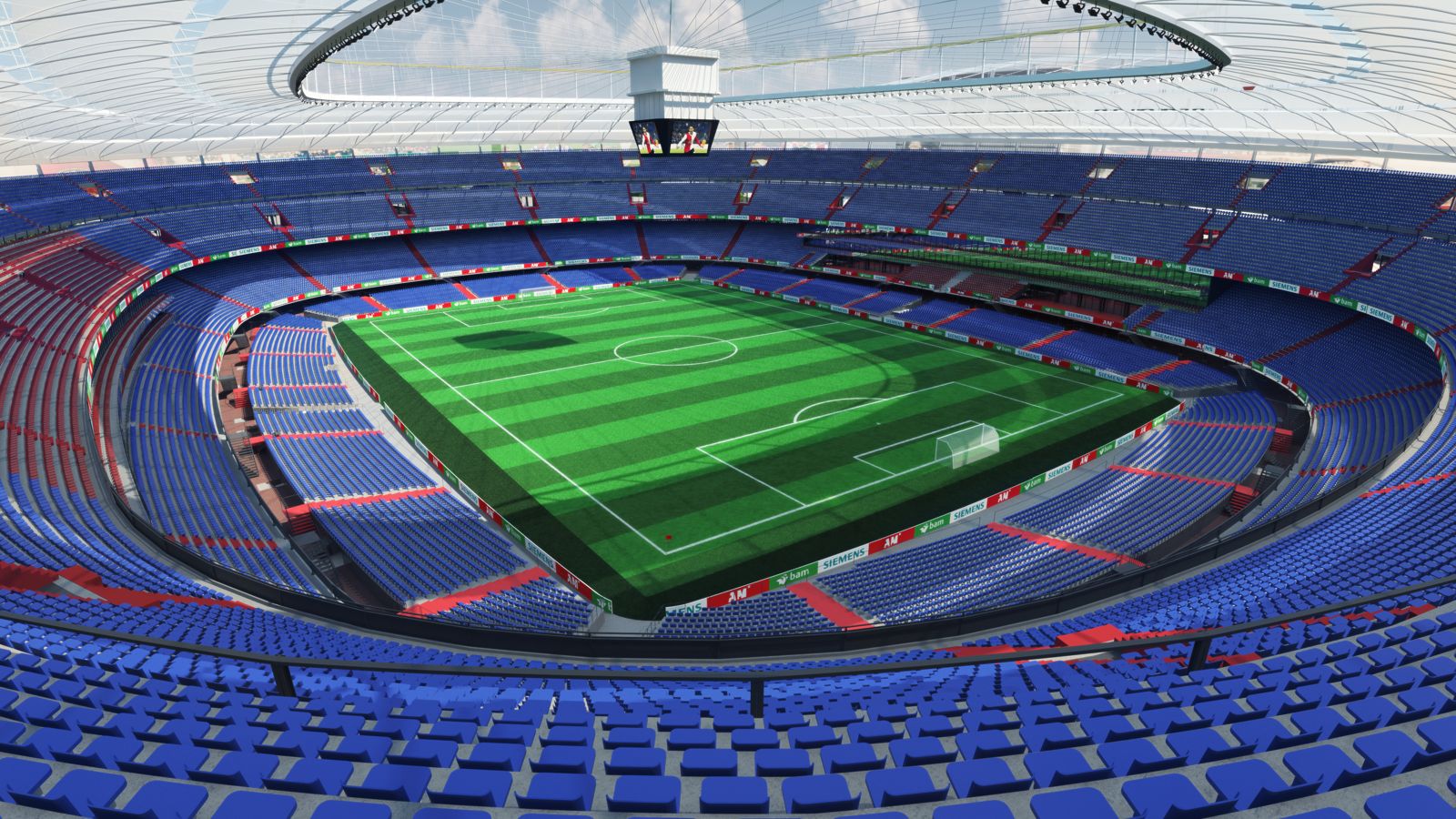
Design De Kuip (I)
Stadium Floor plan Will you be visiting De Kuip soon and do you wonder where exactly you'll be sitting? On the floor plan below you can see the layout of the stands in compartments for visitors and business visitors, the entrances, the location and surroundings of the stadium and the car parks. De Kuip floor plan De Kuip parking spaces
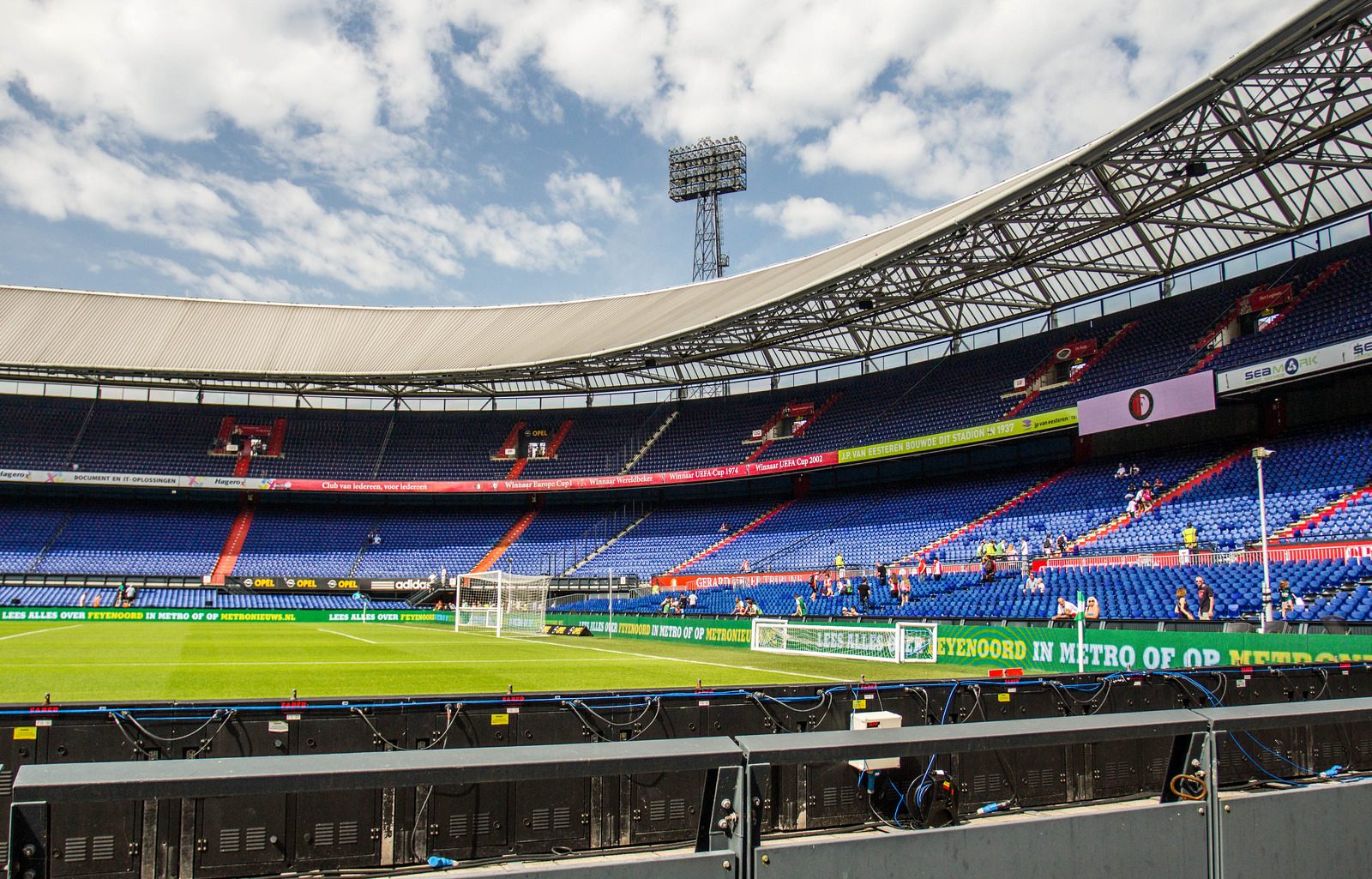
Stadion Feijenoord (De Kuip)
De Kuip, officially called Stadion Feijenoord, was built in the 1930s to provide Feyenoord with a new world-class stadium. Inspiration for the new stadium came from then club-president Van Zandvliet, whose ambitions for the club involved a new 65,000-stadium.
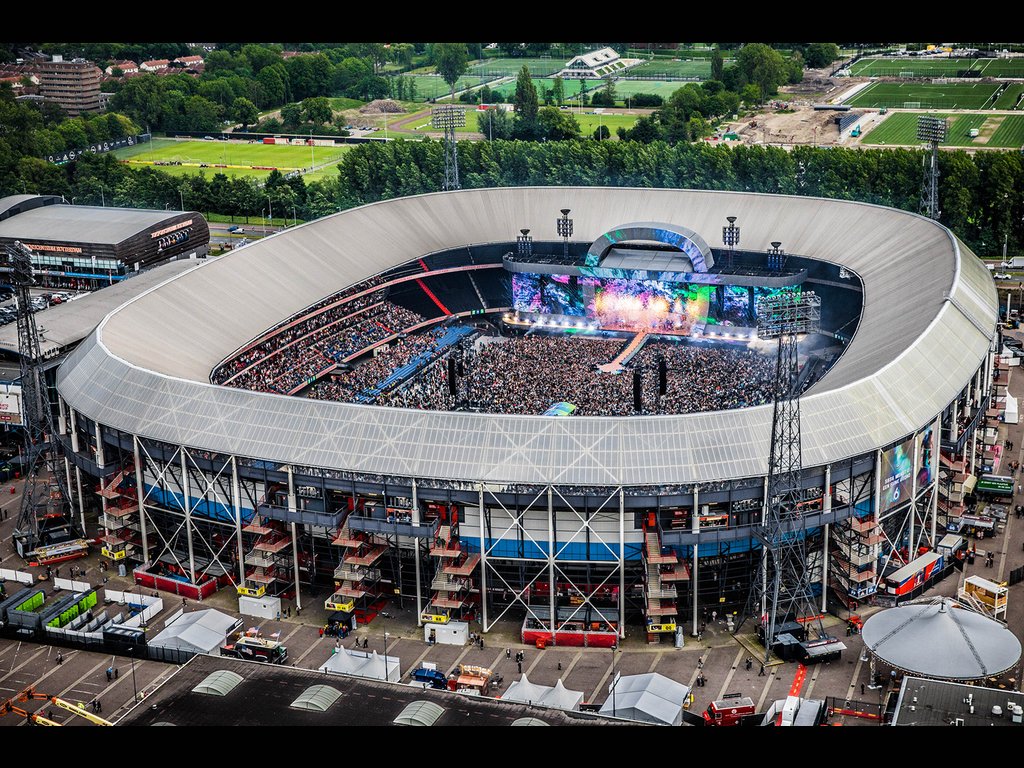
De Kuip Meetings and Events
Book a stadium tour starting at €11 p.p. Wednesdays through Saturdays. Check out the different tours and arrangements below for all the options. Stadium tour Group Tour Kidstour Birthday party School tour Disabled tour Match tour Have you always wanted to take a look behind the scenes at Feyenoord and De Kuip?
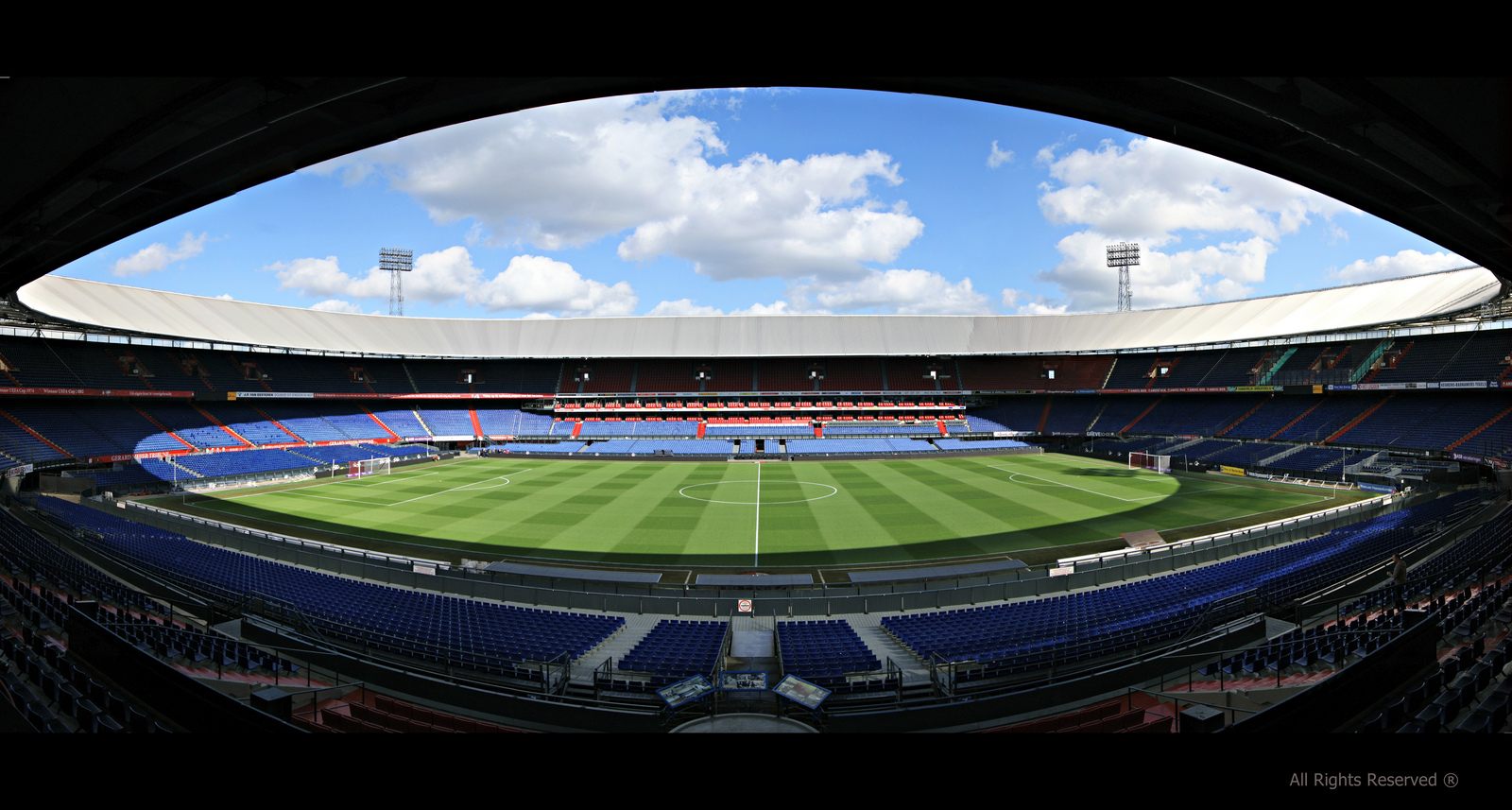
Stadion Feijenoord (De Kuip)
De Kuip is currently the home stadium of football club Feyenoord, one of the traditional top teams in the Netherlands. It has also long been one of the home grounds of the Netherlands national football team, having hosted over 150 international matches, with the first one being a match against Belgium on 2 May 1937.
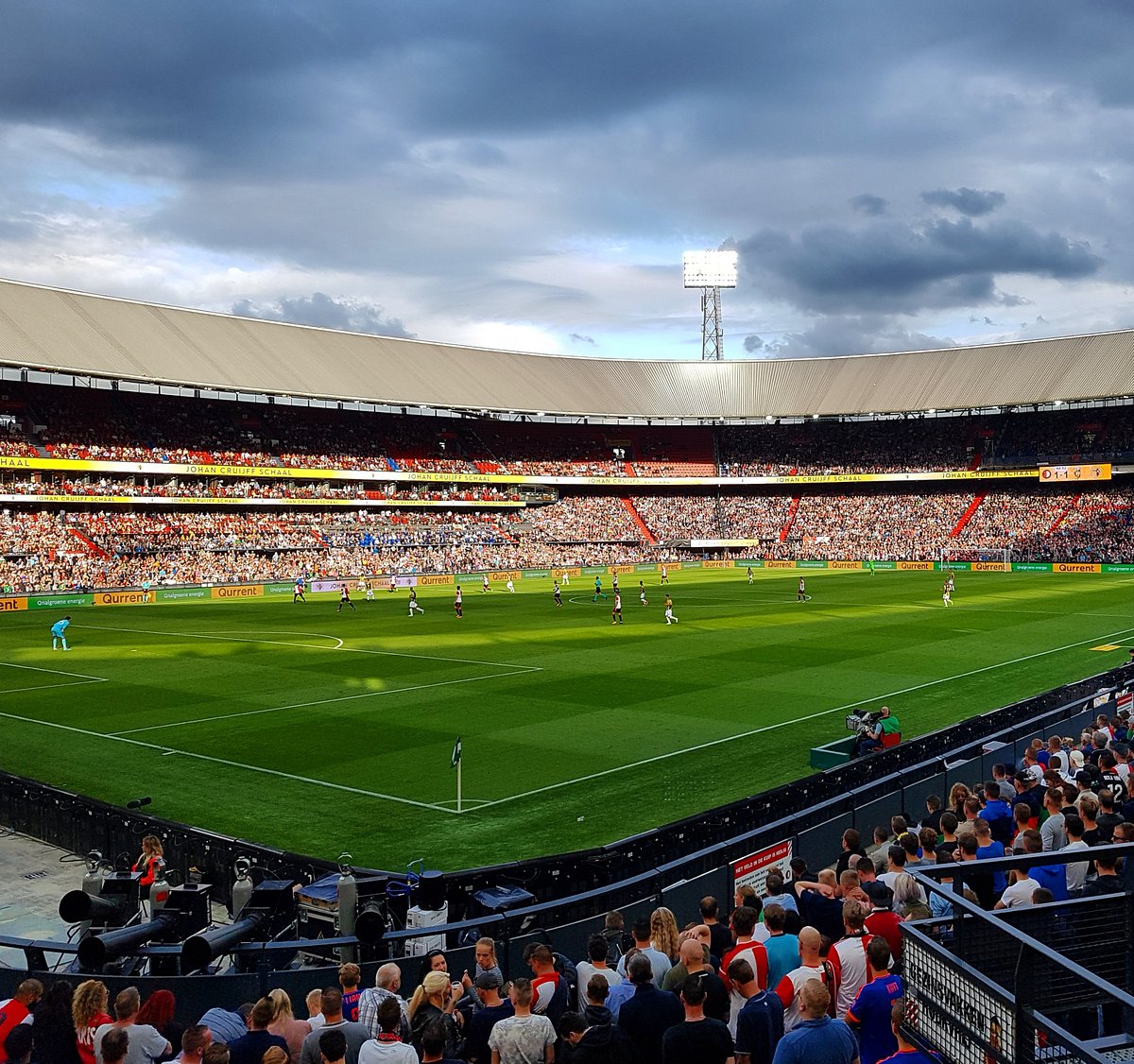
Stadium Feijenoord (De Kuip) Rotterdam Stadium Feijenoord (De Kuip
Buy your tickets and experience a Feyenoord match in De Kuip Stadium! Buy tickets at the official Feyenoord Ticketshop. Be quick because tickets run out fast.
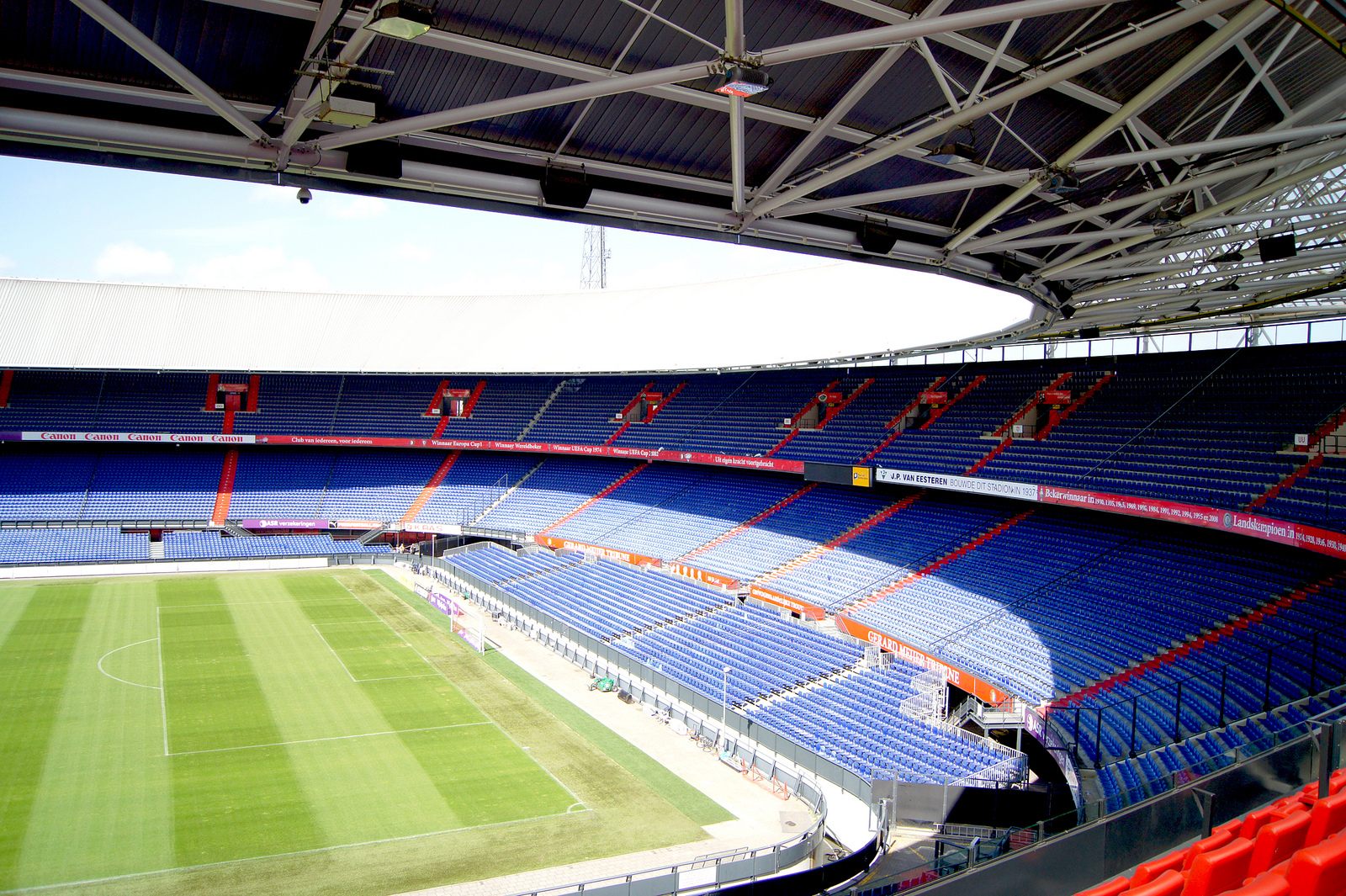
Stadion Feijenoord (De Kuip)
De Kuip, as the Feijenoord Stadium is popularly called, opened it's doors in 1937 as the football stadium for Feyenoord's home games. More than eighty years later that is still the primary function of this football temple, but the stadium is much more than that.
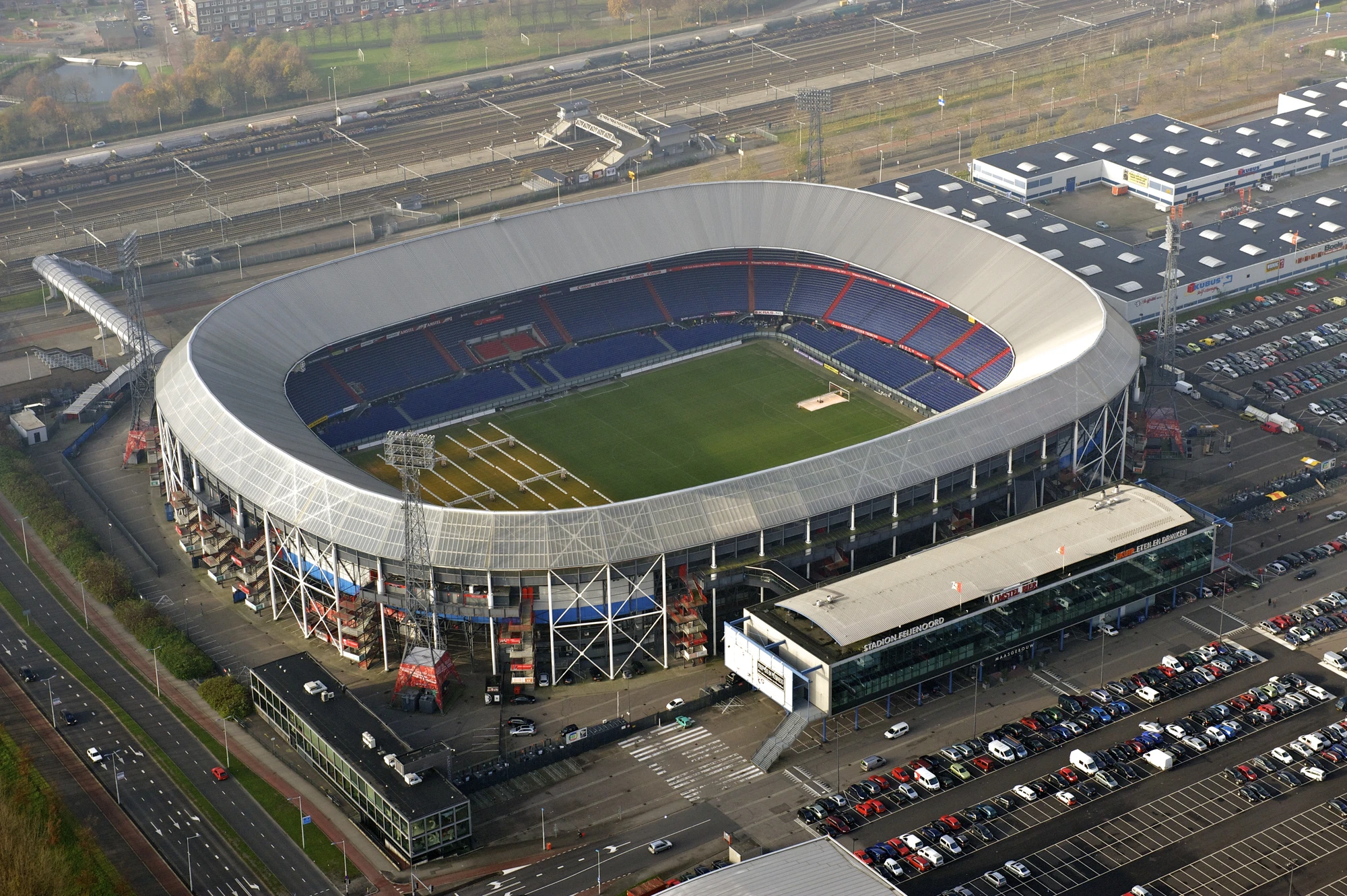
Image Feyenoord De Kuip 004.jpg Football Wiki FANDOM powered by Wikia
Fondly referred to as De Kuip (or the tub) in Rotterdam, Feyenoord's stadium in the city's south has been home to the Dutch football club for over eighty years. When completed in 1937, the stadium structure—built entirely with steel and concrete tiers and including a curved, cantilevered stand—was a forerunner in modernist football stadium.

Stadion Feijenoord (De Kuip)
Feyenoord Stadium The steelwork gleaming in the sun, the grass blades trimmed to perfection and the floodlight towers like four giants watching over the city of Rotterdam De Kuip Whatever your allegiances, you will agree De Kuip is the finest stadium in The Netherlands.
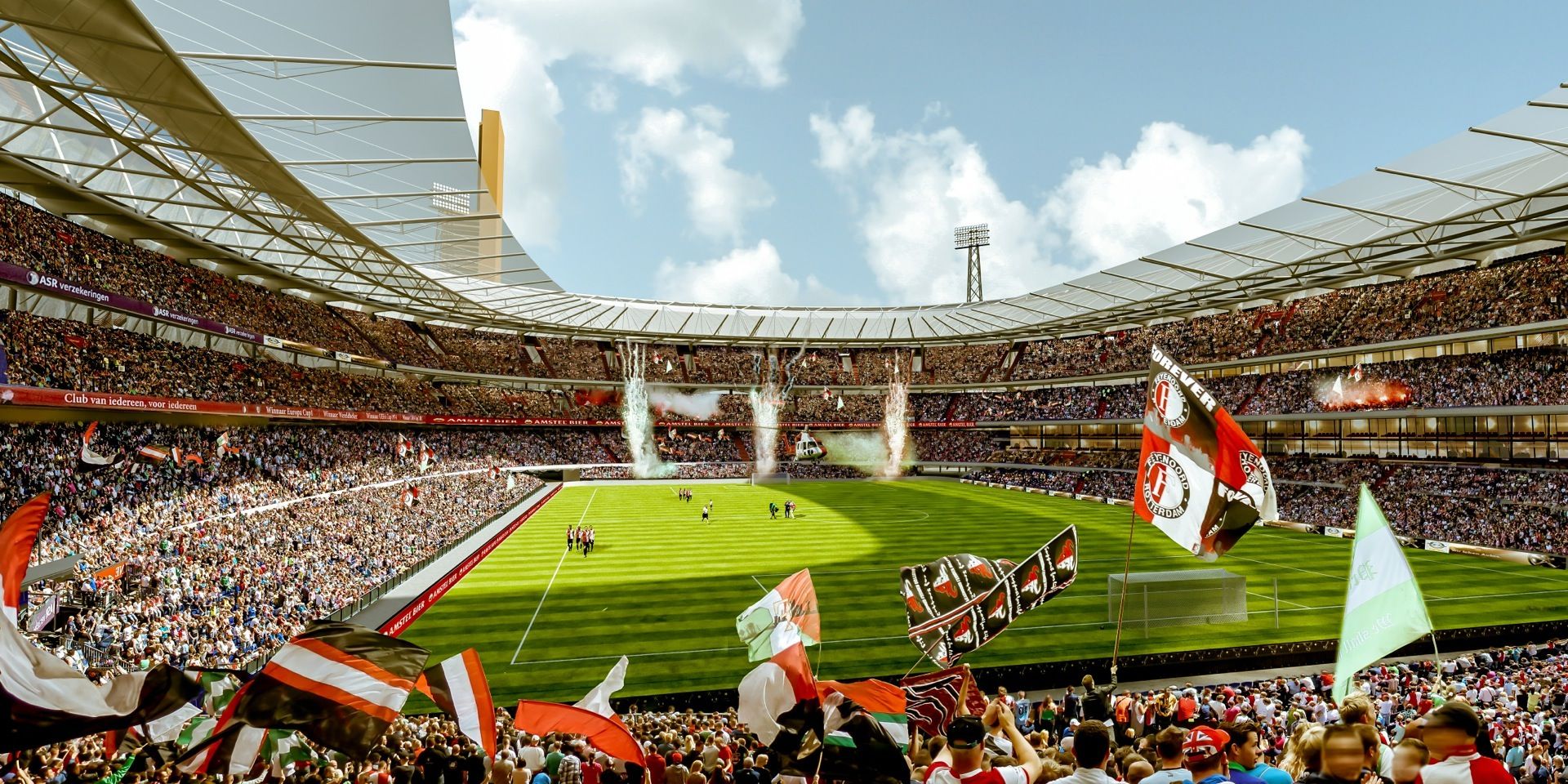
Design De Kuip
Name of stadium: Stadion Feyenoord "De Kuip" Total capacity: 47.500: 47.500 at international matches: Standing room: 1.200: including 1.200 covered: Seats: